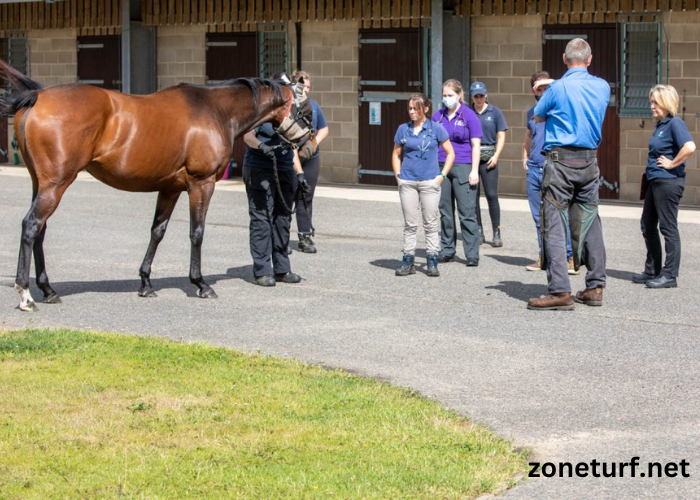Caring for a horse is a rewarding experience that requires dedication, knowledge, and attention to detail. Whether you are a seasoned equestrian or a first-time horse owner, understanding the essentials of horse care is crucial for the well-being of your equine companion. This guide covers the fundamentals of stable management, feeding, and health tips to ensure your horse thrives. Discover the finest quality turf products at AbdellatifTurf. From lush green grass to durable turf, find the perfect solution for your landscaping needs.
Stable Management
1. Stable Environment A well-maintained stable is the cornerstone of good horse care. The stable should be clean, dry, and well-ventilated to prevent respiratory issues. Regular mucking out is essential to remove manure and urine, reducing the risk of infections and creating a comfortable living space for your horse.
2. Bedding Choose suitable bedding materials such as straw, wood shavings, or rubber mats. Bedding should be absorbent and changed regularly to maintain hygiene and comfort. Ensure the bedding is free from dust and mold, which can cause respiratory problems.
3. Space and Safety Each horse should have enough space to move comfortably in its stall. Stalls typically measure 12×12 feet but may vary depending on the horse’s size. Ensure the stable is free from sharp edges, protruding nails, or other hazards that could cause injuries.
4. Ventilation and Lighting Proper ventilation helps reduce ammonia buildup from urine and maintains air quality. Natural light is beneficial, but artificial lighting should also be adequate, especially in winter months. Lights should be placed safely out of reach to prevent accidents.
Feeding
1. Balanced Diet A horse’s diet should consist primarily of forage, such as hay or pasture, providing the necessary fiber for digestive health. The average horse consumes about 1.5-2% of its body weight in forage daily. Supplement the diet with grains or concentrates if needed, based on the horse’s age, workload, and health status.
2. Fresh Water Access to clean, fresh water at all times is vital. A horse can drink between 5-10 gallons of water per day, depending on its size, diet, and activity level. Regularly check water sources to ensure they are clean and free from contaminants.
3. Feeding Schedule Establish a consistent feeding schedule to promote healthy digestion. Divide the daily ration into several smaller meals to mimic the horse’s natural grazing behavior. Avoid sudden changes in diet, as this can lead to digestive issues.
4. Supplements Consider dietary supplements if your horse has specific nutritional needs. Common supplements include vitamins, minerals, joint support, and probiotics. Consult a veterinarian or equine nutritionist before adding supplements to ensure they are necessary and appropriately balanced.
Health Tips
1. Regular Veterinary Care Routine veterinary check-ups are essential to monitor your horse’s health and catch any potential issues early. Annual vaccinations, dental examinations, and deworming schedules should be maintained. Keep a record of all veterinary visits and treatments.
2. Hoof Care Regular hoof care is critical for preventing lameness and other foot-related problems. Schedule farrier visits every 6-8 weeks to trim and, if necessary, shoe your horse. Daily cleaning of hooves removes debris and allows you to check for signs of injury or infection.
3. Grooming Daily grooming helps maintain a healthy coat, skin, and promotes circulation. It also allows you to check for cuts, swelling, or parasites. Use appropriate grooming tools, such as brushes, combs, and hoof picks, and be gentle to avoid causing discomfort.
4. Exercise and Mental Stimulation Regular exercise is crucial for a horse’s physical and mental well-being. Provide opportunities for turnout in a safe paddock and engage in activities like riding, lunging, or ground work. Mental stimulation through training and social interaction with other horses also contributes to a balanced, happy horse.
5. Observation Spend time observing your horse daily to become familiar with its normal behavior and habits. Early detection of changes in appetite, behavior, or physical condition can be critical in addressing health issues promptly.
Conclusion
Providing comprehensive care for a horse involves a combination of proper stable management, a balanced diet, regular health checks, and attentive daily care. By understanding and implementing these essentials, you can ensure that your horse remains healthy, happy, and thriving, forming a lasting bond built on trust and mutual respect.



